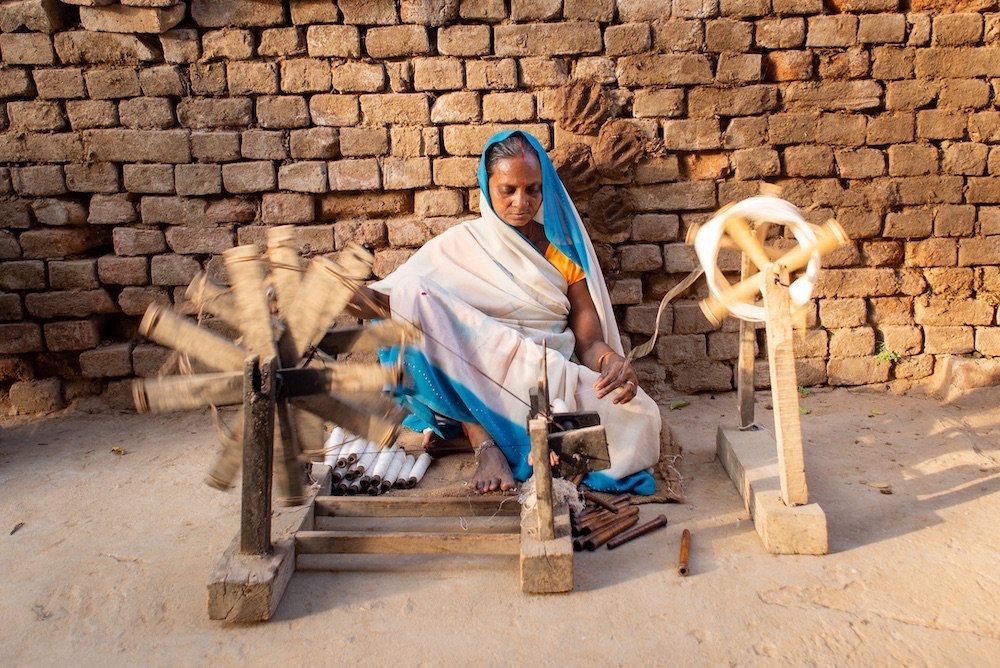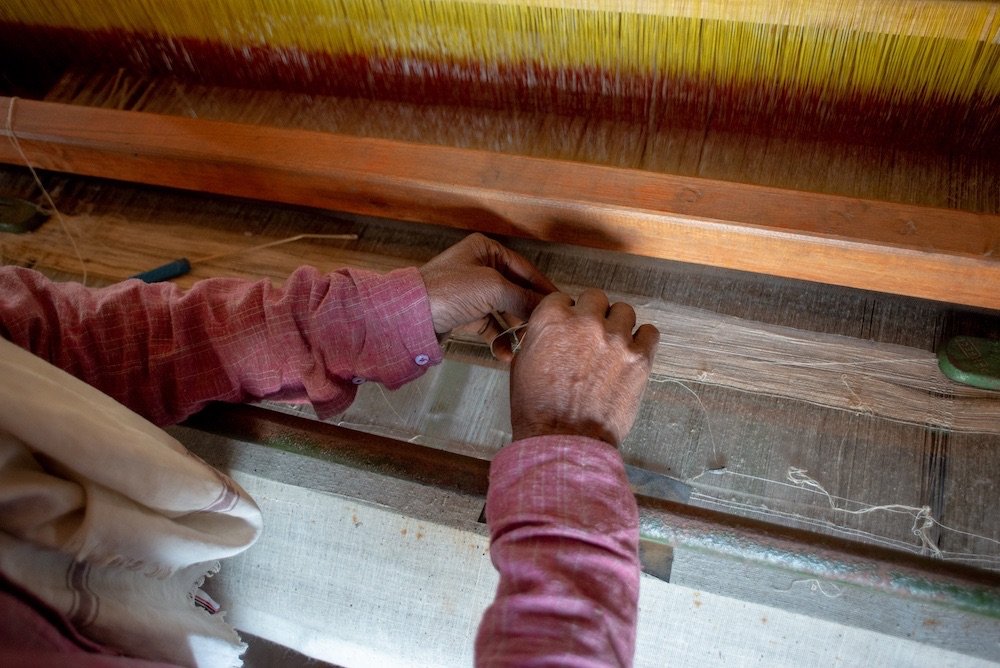
HAND-LOOMED COTTON
A small thread makes a BIG difference when loomed.
HAND-LOOMED COTTON
Aji Filters are made from a Hand-loomed cotton from Bihar, India. The cotton is sourced through a social enterprise meaning all the profits go back into building communities and infrastructure in the region, this positively impacts people involved in the growing, harvesting and looming of the cotton material.
Our cotton is grown, harvested, pulled into fibres and then loomed, all by hand into a high quality lightweight cotton material.
BREWED FOR HUNDREDS OF YEARS
Cotton and coffee have had a close relationship for over a thousand years, brewing with cotton is not new and for very good reason. The ability to produce a high quality filter out of a readily available material such as cotton allowed people to make their own cotton filters to brew with.
In Colombia and other coffee growing regions cotton is still a very popular method of brewing coffee.
Coffee was introduced to Europe in the 17th century by European travelers who brought it back from the Arabian Peninsula. It quickly gained popularity and coffee shops began to appear all over Europe, starting in Italy. These coffee shops served as social gathering places, much like modern coffee shops today. In these coffee shops, coffee pots were the main method of brewing. Ground coffee was placed inside the pot and the water was heated until it was almost boiling. The spouts of these pots helped to filter out the coffee grounds, and their flat bottoms allowed for efficient heat absorption. Over time, both coffee pots and filtering methods evolved.
Historians believe that the first coffee filter was actually a sock. People would pour hot water through a sock filled with coffee grounds. Cloth filters were commonly used during this time. Paper filters wouldn't become popular until about 200 years later.
WHAT IS HAND LOOMING?
Hand-looming cotton is a traditional method of weaving cotton fabric using manual looms operated by hand. The process involves several steps: preparing the cotton fibers by removing seeds and impurities, spinning the fibers into yarns, setting up the loom by creating a warp (lengthwise threads) and threading it through the heddles and reed of the loom, weaving the fabric by passing the weft yarn (horizontal threads) through the shed created by the heddles and packing it tightly using a beater.
Hand-looming offers greater control over the weaving process, making it suitable for producing small batches of high-quality fabric. However, it is labor-intensive, time-consuming, and physically demanding, resulting in a limited production output and more expensive compared to automated methods.
Hand-loomed cotton textiles are considered specialty products valued for their craftsmanship and cultural significance.

“WE DISCOVERED THAT USING A HIGHER QUALITY COTTON WE COULD ACHIEVE BETTER TASTING COFFEE.”
— AJI FILTER
TASTE:
The cotton material we use to make our Aji Filters is a lightweight yet durable material, loomed fibres all hold together and create a somewhat-even size hole.
When wet, Aji filters resemble more of a silk-like texture. This texture hugs the walls of the dripper you choose to brew with and helps to lower bypass and increase the contact time.
We recommend using hot water to pre wet your Aji Filter prior to brewing for best results



